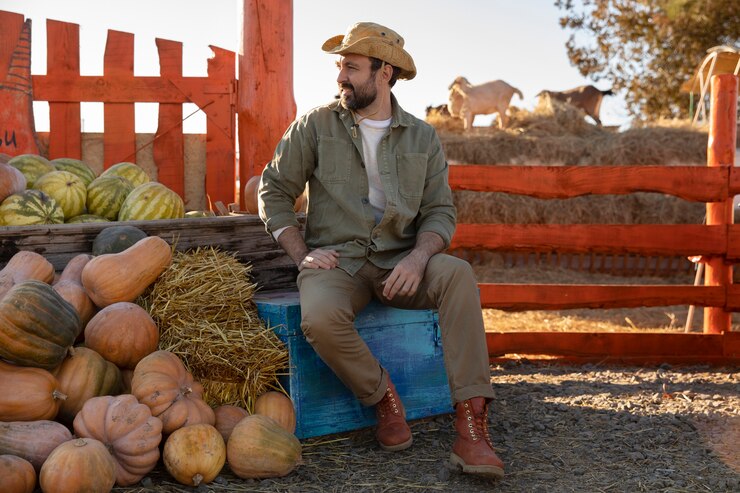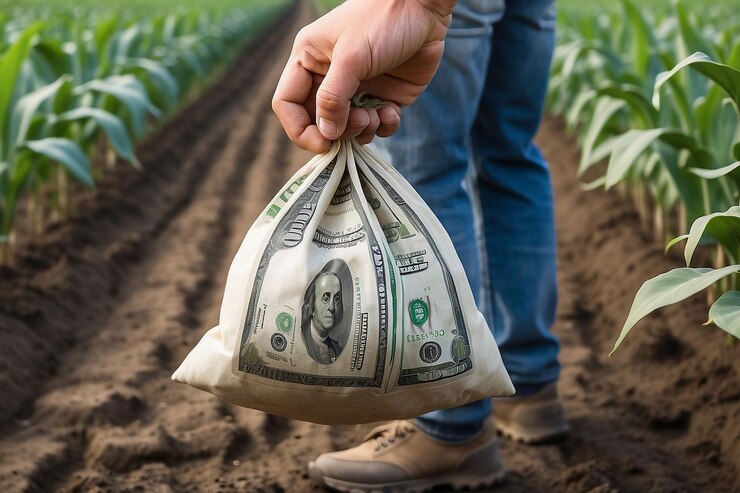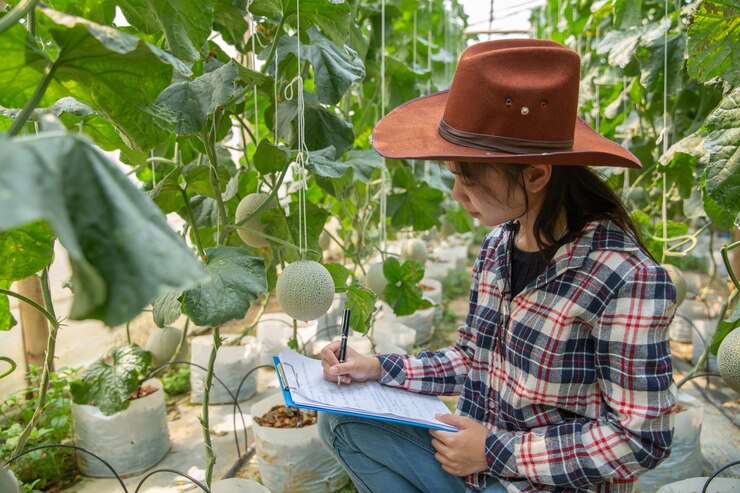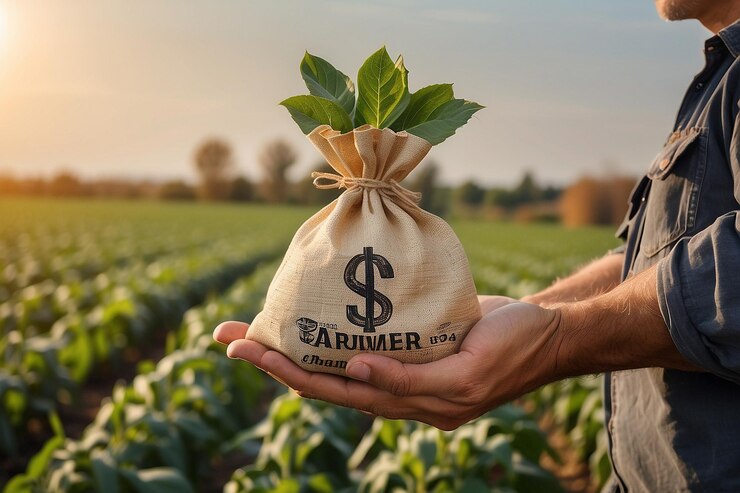The varied climate, rich soil, and expansive landscapes of Texas make it an important player in the American agriculture sector. Agriculture has always played an important role in Texas, from raising cattle to growing cotton, and this has been true throughout the state’s history.

To keep and grow their businesses, farmers and ranchers rely on agricultural loans to help them secure the capital they need. Learn all about agricultural loans in Texas—what they are, how to apply, what you need, and how to get the best one for your needs—in this comprehensive guide.
Gaining Comprehension on Farm Loans:
Loans tailored specifically to the needs of farmers are known as agricultural loans. Land, machinery, cattle, seeds, and other necessities are made available to agribusinesses, ranchers, and farmers through these loans. Lenders in Texas that specialize in agricultural loans include banks, credit unions, government organizations, and others.
Texas Farm Ownership Loans and Other Agricultural Financing Options:
Farm ownership loans are used to buy or expand farmland, construct or restore structures, and perform soil and water conservation improvements.
Lenders:
These loans are often supplied by the Farm Service Agency (FSA), commercial banks, and other agricultural lenders.
Requirements:
Borrowers require an excellent credit history, a plausible business strategy, and in some circumstances, experience in farming.
Operating Loans:
Operating loans are short-term loans designed to cover everyday expenses, such as purchasing seeds, fertilizers, livestock feed, or paying labor charges.
Lenders:
These loans can be secured through the FSA, banks, and local credit unions.
Requirements:
Proof of the ability to repay, often through a reasonable cash flow estimate, is necessary.
Equipment Loans:
Purpose:
Equipment loans are used to purchase new or used farming equipment, such as tractors, combines, irrigation systems, and other gear.
loans:
Offered by banks, specialized equipment loans, and sometimes straight from equipment sellers.
Requirements:
A down payment may be required, along with collateral in the form of the equipment being acquired.
Livestock Loans
Purpose:
Livestock loans are designed to help farmers purchase cattle, pigs, poultry, and other livestock.
Lenders:
Available from banks, agricultural lenders, and the FSA.
Requirements:
Similar to equipment loans, collateral (in this case, animals) is typically required.
Beginning Farmer Loans
Purpose:
These loans are targeted at young farmers who may not have the capital or credit history to acquire standard loans.
Lenders:
The FSA is a key provider, offering preferential conditions to young or beginning farmers.
Requirements:
Typically, applicants must be in their first 10 years of farming.
Emergency Loans:
Purpose:
Emergency loans provide financial support to farmers recovering from natural disasters, such as floods, droughts, or storms.
Lenders:
The FSA offers these loans, with specified terms based on the magnitude of the damage and the proclaimed disaster area.
Requirements:
Proof of disaster-related loss is required, along with the standard credit and repayment capacity checks.
Government Support and Programs:
The U.S. Department of Agriculture (USDA) plays a vital role in aiding Texas farmers through several loan programs. The Farm Service Agency (FSA), an agency of the USDA, is particularly active in providing direct and guaranteed loans.

These initiatives are designed to be available to farmers who may not qualify for conventional loans owing to inadequate credit history or financial resources.
Direct Loans:
Overview:
Direct loans are made by the FSA itself, offering more favorable terms and cheaper interest rates compared to commercial loans.
Benefits:
These loans might be a lifeline for small farmers or individuals with low credit.
Guaranteed Loans:
Overview:
In this program, the FSA guarantees a loan issued by a commercial lender, decreasing the lender’s risk and often resulting in better terms for the borrower.
Benefits:
Allows farmers to access higher amounts of finance and create a connection with commercial lenders.
Overview:
Microloans are a subclass of FSA loans aimed for smaller farming operations, including specialty and non-traditional farms.
Benefits:
Easier application process and fewer severe requirements make these loans perfect for small-scale farmers.
Key Lenders in Texas Farm Credit System:
The Farm Credit System is a countrywide network of borrower-owned financial institutions that provide credit and financial services to farmers, ranchers, and rural businesses. In Texas, Farm Credit entities are significant lenders offering a wide range of agricultural loans.
Texas AgFinance:
Texas AgFinance specializes in offering finance options targeted to the needs of Texas farmers and ranchers. They offer reasonable rates and flexible terms for land, equipment, and operational financing.
Commercial Banks and Credit Unions:
Many commercial banks and credit unions in Texas offer agricultural loans, frequently with the backing of federal programs like those from the USDA. These institutions provide a variety of lending products, including real estate loans, lines of credit, and operating loans.
Application Process:
Applying for an agricultural loan includes numerous processes. Understanding these procedures can improve your chances of receiving the correct loan for your needs:
Preparation:
Gather financial papers, including tax returns, profit and loss statements, and a detailed company plan. A comprehensive understanding of your credit score and financial health is also vital.
Selecting a Lender:
Research and compare lenders based on interest rates, terms, and the unique demands of your organization. Consider working with a lender who has experience in agriculture financing.
Loan Application:
Complete the loan application with all relevant documentation. This normally comprises personal identity, financial statements, facts of the farm activity, and the purpose of the loan.
Loan Review and Approval
The lender will analyze your application, analyzing your creditworthiness, collateral, and ability to repay the loan. This process may entail appraisals, inspections, and talks with loan officers.
Closing:
Once approved, the loan is formalized through a closing process, when all terms are agreed upon, and money are disbursed.
Factors to Consider When Choosing an Agricultural Loan Interest Rates and Terms

Compare interest rates and conditions from numerous lenders. Lower rates and longer durations can greatly lessen your repayment load.
Loan Flexibility:
Consider loans that give flexibility in repayment schedules, especially those that fit with the seasonal nature of farming.
Lender Experience:
Work with lenders who understand the agricultural industry and can provide specific advice and help.
Government Programs:
Take advantage of government initiatives that offer more advantageous terms, particularly if you are a beginning farmer or facing financial issues.
Collateral Requirements:
Understand what collateral is necessary and verify you are comfortable with the terms. For instance, equipment loans may need the equipment itself as collateral.
Challenges in Securing Agricultural Loans:
While agricultural loans can give crucial support, acquiring them is not without challenges:
Credit History:
Farmers with limited or poor credit histories may struggle to qualify for typical loans. Government-backed loans can be a beneficial alternative.
Market Volatility:
Agricultural markets are naturally volatile, with prices for commodities and livestock varying dramatically. Lenders may be leery of these risks, making it difficult to acquire money.
Weather and Environmental Risks
Texas is prone to extreme weather events, including droughts and storms, which can impair farm productivity and, consequently, loan repayment ability.
Rising Costs:
Increasing expenses of land, equipment, and inputs like fertilizers and seeds can strain the budgets of farmers, making it challenging to manage loan repayments.
Tips for Securing the Best Agricultural Loan:
Build a Strong Business Plan
A well-thought-out business plan that describes your farming operation, market strategy, and financial projections can make a convincing argument to lenders.
Maintain Good Financial Records:
Keep precise and accurate financial records. Lenders will evaluate your financial history, so having organized records helps accelerate the loan approval process.
Explore Multiple Lenders:
Don’t settle for the first offer. Explore numerous lenders, including banks, credit unions, and specialty agricultural lenders, to get the best conditions.
Consider Government Programs:
Government-backed loans sometimes come with better conditions and are more accessible to farmers with poor credit history. Always examine these possibilities first.
Stay Informed About Market Conditions:
Understanding current market conditions can help you make informed decisions about when to apply for loans and how to structure them.
Agricultural Loan Guarantee Program:
Applications are accepted year-round and subject to available funding.
Purpose:
The Agricultural Loan Guarantee Program (ALG) provides financial support to start or enhance farming or ranching activities or to create an agricultural-related enterprise. This program assists in the form of guarantees based on a tiered system, not to exceed:
- $250,000 or 90% of the loan amount, whichever is less
- $500,000 or 80% of the loan amount, whichever is less.
- $750,000 or 70% of the loan amount, whichever is less.
The period of a loan guarantee granted by TAFA must not exceed the useful life of the assets being funded or 10 years, whichever is less.
Eligible Borrower:
An individual that will use the loan proceeds to create or expand an agricultural enterprise in Texas.
- Meet the lender’s underwriting standards.
- The borrower(s) should have:
- A credit score of 650 or better
- Equity contribution of at least 15% of the loan amount
- Debt to equity of 2:1 or less
- Debt service coverage of 1.25 or better
Eligible Lender:
Any state or nationally chartered banking instittion or farm credit institution.
Application Process:
The application is a joint application between the Lender and the Borrower.
- Upon initial evaluation for eligibility, TDA personnel will distribute the application via DocuSign for electronic signatures by all parties.
- If approved, the Lender, the Borrower and TDA will sign an Agricultural Loan Guarantee Agreement which will be part of the loan closing paperwork.
- The lender may schedule loan closing at any moment, however once the guarantee application has been granted an acceptance letter will be given, valid for 30 days.
Use of Funds:
A loan guarantee recipient may use loan funds for any agricultural related purpose, including:
- Working capital,
- Lease of facilities,
- Purchase of machinery and equipment, and/or
- Purchase of real estate, as identified in recipient’s papers filed in support of the application.
Fees:
- Application Fee: $100 (non-refundable) due at the time of application
- Origination Fee: A minimum of 1% of the guaranteed amount due within 10 days of loan closing.
Interest Rebate:
Borrowers under the ALG program may be eligible for a reimbursement of a portion of the interest they pay on the loan.

The maximum annual rebate is $500 and shall not exceed the 1% origination charge during the length of the guarantee. The interest rate rebate may be changed by TAFA within statutory restrictions.
Reporting:
The Lender is responsible for submitting a quarterly report confirming outstanding loan details.
Conclusion:
Agricultural loans serve a key role in supporting Texas’s thriving agricultural sector, providing the essential financing for farmers and ranchers to succeed. Whether you are a seasoned farmer looking to expand your operations or a new entry in the field, understanding the many types of agricultural loans, the application procedure, and the elements to consider will considerably boost your chances of receiving the cash you need. With the appropriate credit, Texas farmers may continue to nurture success and contribute to the state’s strong agricultural tradition.











2 thoughts on “Agricultural Loans in Texas”